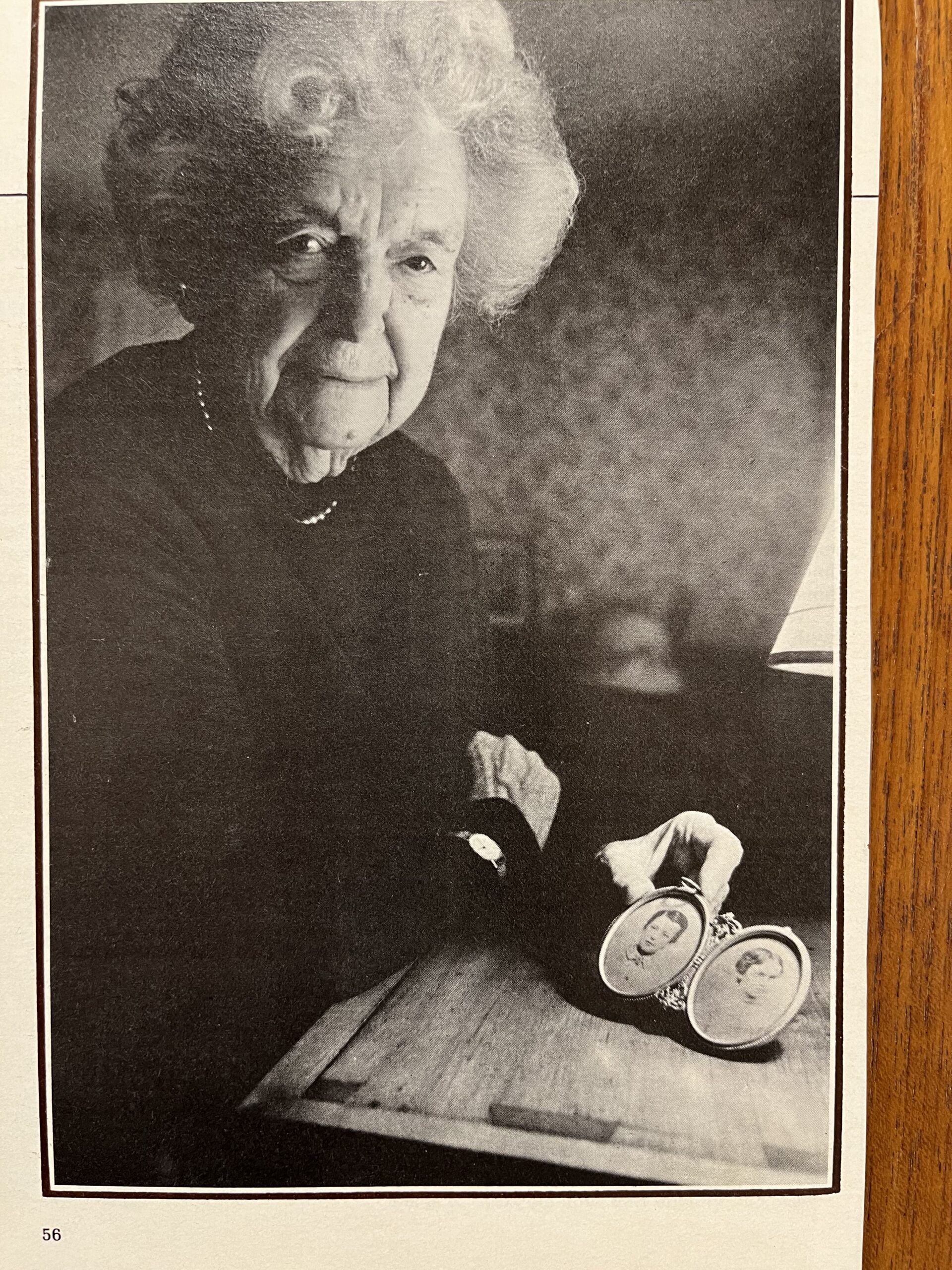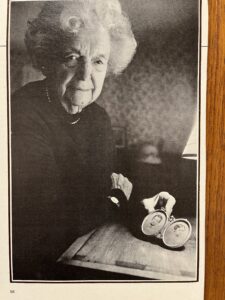Marjorie Newell Robb
Posted on January 20, 2025 by Jenny ONeill

Marjorie Newell Robb (1889 – 1992)
Survivor of the Titanic disaster
1656 Main Road and Dune Cottage

Marjorie was born in Lexington MA, the daughter of Arthur (a prominent Boston banker) and Mary (Greeley) Newell. She survived the Titanic disaster, and lived to become one of the oldest survivors, dying at the age of 103. Her final 4 decades were spent at Westport Point. She carried the trauma of her experience silently for most of her life. For years, even her closest friends “hadn’t the slightest inkling that I was aboard the Titanic.” It was only in her final decade that she began to speak about her experience, giving many interviews and public presentations, including one for the Westport Historical Society.
Listen to her account:
audio raised and ai enhanced (starts at 20 sec)
audio raised, no ai (sound quality poor)
Reporter Scott Eyman described her as “a most definite-minded, jut-jawed matriarchal woman, whose strength of character is complemented by a distinctly coquettish femininity.”
At the age of 23 she boarded the Titanic in Cherbourg, France for the return trip home after a tour of Egypt and the Mediterranean, accompanied by her sister Madeline and her father. Following a lavish dinner, the sisters retired to their room, only to be awoken by a “great vibration.” Her father, visibly shaken, quickly summoned them to go on deck, advising them to wear warm clothing. She was among the first to reach the deck, and was placed with her sister on the second lifeboat.
“It was quiet, everybody was so stunned and frightened. We were lowered in the boat. Most of the people in the boat were women and they were frightened; nobody was saying anything. I thought to myself, ‘You have to help where you can’ so I took hold of an oar and rowed and rowed.”
Marjorie recalled the vision of the Titanic as it slipped into the water:
“In a way it was beautiful, every light on the ship was on and each porthole was illuminated… You could actually feel it, the noise, the vibrations of the screams of the people and the sounds of the ship…” She had no recollection of hearing the orchestra playing Nearer My God to Thee. “It never occurred to us that Father hadn’t gotten off; we didn’t realize how few had been saved.”
The profound shock of her father’s death was only eased by a sense of pride: “I was so proud of him, that he’d abided by the rule of the sea: women and children first. Some men didn’t. I know I sat beside a man on the Carpathia who had shoved aside women and children to save his own life. Why, even John Jacob Astor got his wife on a boat, but never got off the ship himself.”
She and her sister were among the survivors brought back to New York by the Carpathia. She recalled her mother’s howl of despair when she realized that her two daughters had returned without their father. “She forbade us ever to speak of that night.” The body of her father was found two weeks after the disaster, identified by a distinctive onyx ring.
Marjorie went on to become a music teacher at Wells College, Aurora NY and a social worker in Chicago where she met and married her husband, Floyd Newton Robb, in 1917. In 1920 the Robbs moved to South Orange, NJ where she helped to found the New Jersey symphony. In her later years, Marjorie Robb ran a successful interior design and antiques business. In 1952, she and her husband built a house at 1656 Main Road at Westport Point. She later sold the property, moving nearby to Dune Cottage.
The tragedy overshadowed her life. Reacting to the discovery of the wrecked Titanic in 1985, she commented: “There are no people to be saved, no reason for doing it… It’s too tragic.” A near-religious experience during a visit to Litchfield, UK, the hometown of the Titanic’s captain, brought her solace and courage to begin to process and speak publicly about her experience.
“Maybe a message is to be gained from the tragedy,” she said. “The unsinkable ship, all the money that those men had that was of no use to them at all.”
She died at the age of 103, the oldest Titanic survivor.
